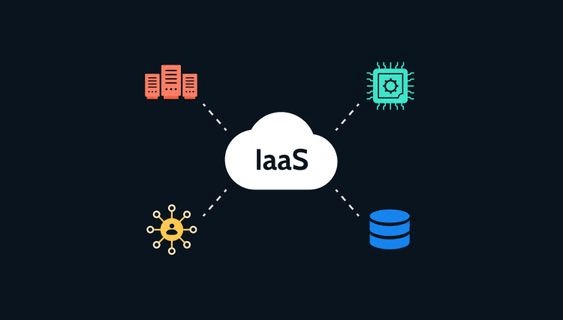
Introduction
In an era where businesses and individuals rely heavily on technology for everyday operations, IT support has become an essential pillar in ensuring smooth functioning. Whether it’s troubleshooting network issues, maintaining software systems, or ensuring cybersecurity, IT support professionals play a critical role in keeping everything running seamlessly. From small startups to multinational corporations, the importance of robust IT support cannot be overstated. In this article, we will delve into what IT support entails, its significance in today’s digital world, the different types of IT support services, and why businesses should invest in comprehensive IT support.
What is IT Support?
IT support refers to the services and technical assistance provided to individuals and businesses to help them manage and resolve their information technology (IT) issues. It includes a wide range of activities such as software installations, hardware troubleshooting, network management, cybersecurity, data backup, and system upgrades. The core purpose of IT support is to ensure that all technology functions optimally, so users can continue to perform their tasks without interruptions.
IT support services can be provided by internal teams within a company or outsourced to specialized third-party service providers. The scope of IT support can vary depending on the size and complexity of the organization’s technology infrastructure.
The Role of IT Support in Modern Business Operations
The role of IT support is multifaceted, and its significance extends far beyond just fixing computer problems. Let’s break down some of the essential ways IT support impacts modern business operations:
- Ensuring System Uptime Downtime can be catastrophic for businesses, especially those heavily reliant on technology for their day-to-day functions. IT support teams are responsible for monitoring systems, identifying potential issues before they escalate, and resolving them promptly to minimize downtime. Through proactive system maintenance, updates, and troubleshooting, IT support helps ensure that business operations continue smoothly.
- Cybersecurity Management With the growing threat of cyberattacks, one of the primary responsibilities of IT support is to safeguard the organization’s data and networks from unauthorized access, malware, ransomware, and other malicious threats. IT support professionals implement firewalls, anti-virus software, encryption protocols, and multi-factor authentication to secure business assets and sensitive information. They also stay abreast of evolving cyber threats to implement the latest security measures.
- User Support and Help Desk Services IT support provides valuable assistance to employees or end-users when they encounter issues with their hardware or software. The help desk services are often the first point of contact for employees facing technical problems. These issues can range from forgotten passwords and system errors to printer malfunctions and software incompatibility. IT support teams offer quick solutions and guidance, ensuring that employees are not hindered by technical issues.
- Software and Hardware Management In today’s tech-driven world, businesses rely on various software applications and hardware devices to function effectively. IT support teams are responsible for ensuring that all systems are up to date and functioning correctly. This includes managing operating systems, installing necessary software, troubleshooting hardware malfunctions, and providing recommendations for upgrades or replacements. An efficient IT support team also ensures compatibility between various systems and devices, enabling smooth operations.
- Data Backup and Recovery Data is a vital asset for any organization, and its loss can lead to significant business disruptions. IT support professionals are tasked with implementing reliable data backup solutions to ensure that critical business data is regularly backed up. In case of data corruption, system failure, or accidental deletion, IT support teams execute recovery plans to restore lost or damaged data, minimizing the impact of such events on business continuity.
- Scalability and Infrastructure Management As businesses grow, their technology infrastructure must evolve to meet new demands. IT support plays a crucial role in scaling systems and networks to accommodate increased workloads. Whether it’s upgrading hardware, enhancing storage capabilities, or optimizing cloud solutions, IT support teams help businesses scale their infrastructure effectively. This adaptability ensures that companies can continue to meet the demands of their customers and employees without technology limitations.
Types of IT Support Services
IT support services can be broadly categorized into the following types:
- On-Site IT Support This type of IT support involves technicians physically visiting the business premises to resolve hardware or software issues. On-site support is beneficial for more complex issues that cannot be resolved remotely, such as hardware repairs or networking problems that require physical intervention.
- Remote IT Support Remote IT support allows technicians to diagnose and resolve issues without being physically present. Through secure remote desktop tools, IT support professionals can access a user’s system, troubleshoot problems, and apply fixes from any location. This type of support is cost-effective and ideal for resolving minor software or network-related problems.
- Managed IT Services Managed IT services involve outsourcing the entire IT support function to an external service provider. The provider handles all aspects of IT infrastructure management, including monitoring, maintenance, security, and troubleshooting. This arrangement allows businesses to focus on their core operations while relying on experts to manage their IT environment.
- Help Desk Support Help desk support is typically the first point of contact for users experiencing technical issues. IT support teams provide assistance through phone, email, or chat, guiding users through troubleshooting steps or resolving their issues remotely. Help desks can be in-house or outsourced, depending on the organization’s needs.
Why IT Support is Crucial for Businesses
- Minimizing Downtime A key reason businesses need IT support is to minimize downtime. Every minute of system failure can result in lost productivity, missed opportunities, and financial losses. With a reliable IT support team in place, companies can resolve issues swiftly, ensuring that operations continue without disruption.
- Reducing IT Costs While many businesses hesitate to invest in IT support due to perceived costs, the long-term benefits far outweigh the initial investment. Outsourcing IT support or investing in an in-house team can help businesses reduce the costs associated with system failures, data breaches, and inefficient technology management.
- Staying Competitive Technology plays a pivotal role in a company’s ability to stay competitive. Efficient IT support ensures that the latest tools, software, and systems are being used to streamline operations and deliver superior customer experiences. With proper IT support, businesses can leverage technology to innovate and gain an edge in the marketplace.
- Enhancing Security The threat landscape is constantly evolving, and businesses of all sizes are at risk of cyberattacks. IT support ensures that robust cybersecurity measures are in place to protect sensitive data and assets. From firewalls to encryption, IT support teams safeguard a company’s reputation and bottom line by preventing data breaches and other cyber threats.
Conclusion
In conclusion, IT support is no longer a luxury but a necessity for businesses in the modern digital landscape. It helps ensure business continuity, enhances productivity, safeguards sensitive information, and allows organizations to leverage technology effectively. By investing in strong IT support, businesses can stay ahead of the competition, reduce risks, and maximize the benefits of their technology infrastructure. Whether through in-house teams or outsourced providers, comprehensive IT support is essential for navigating the complexities of the digital age and ensuring smooth operations day in and day out.



